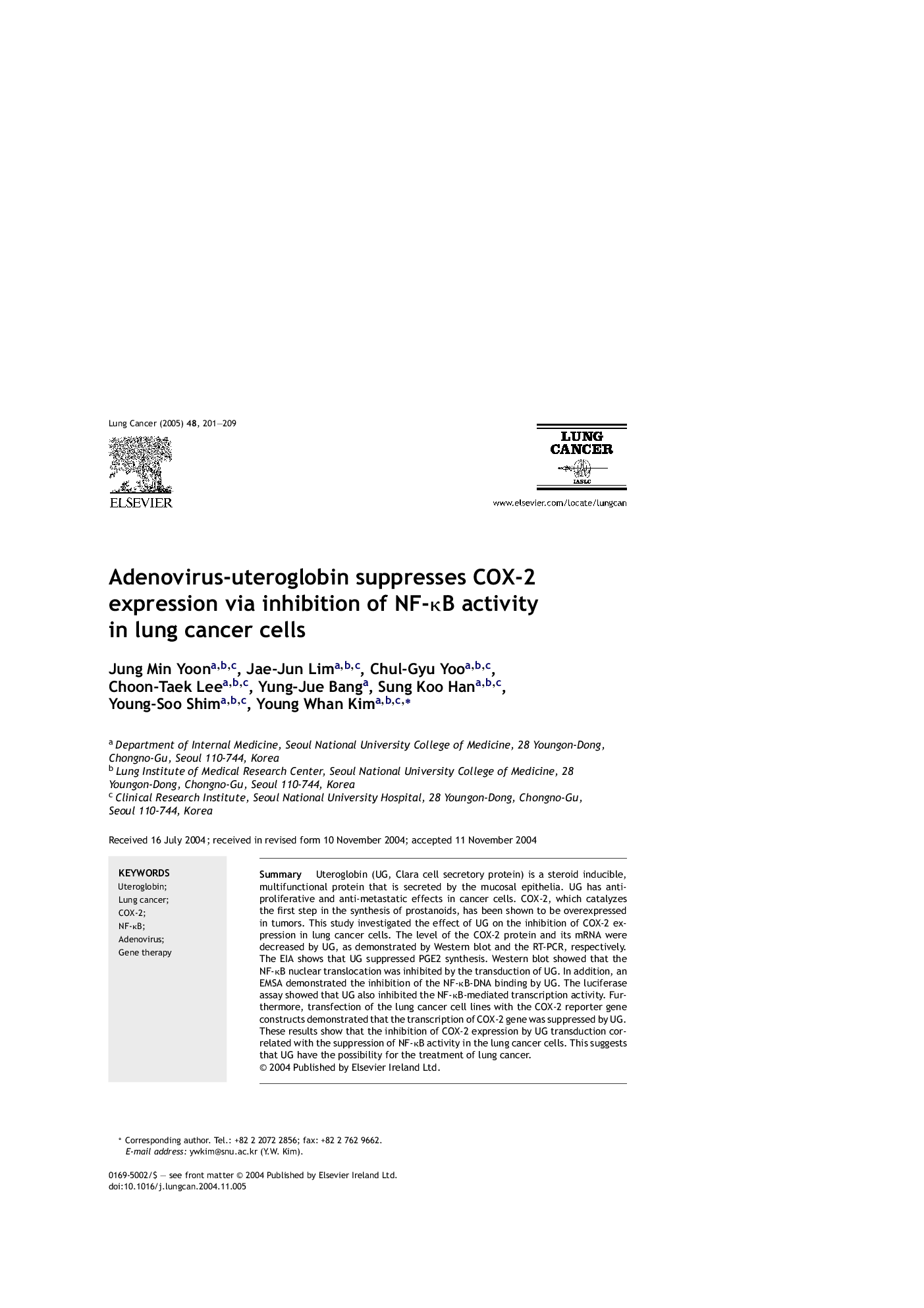| Article ID | Journal | Published Year | Pages | File Type |
|---|---|---|---|---|
| 10912174 | Lung Cancer | 2005 | 9 Pages |
Abstract
Uteroglobin (UG, Clara cell secretory protein) is a steroid inducible, multifunctional protein that is secreted by the mucosal epithelia. UG has anti-proliferative and anti-metastatic effects in cancer cells. COX-2, which catalyzes the first step in the synthesis of prostanoids, has been shown to be overexpressed in tumors. This study investigated the effect of UG on the inhibition of COX-2 expression in lung cancer cells. The level of the COX-2 protein and its mRNA were decreased by UG, as demonstrated by Western blot and the RT-PCR, respectively. The EIA shows that UG suppressed PGE2 synthesis. Western blot showed that the NF-κB nuclear translocation was inhibited by the transduction of UG. In addition, an EMSA demonstrated the inhibition of the NF-κB-DNA binding by UG. The luciferase assay showed that UG also inhibited the NF-κB-mediated transcription activity. Furthermore, transfection of the lung cancer cell lines with the COX-2 reporter gene constructs demonstrated that the transcription of COX-2 gene was suppressed by UG. These results show that the inhibition of COX-2 expression by UG transduction correlated with the suppression of NF-κB activity in the lung cancer cells. This suggests that UG have the possibility for the treatment of lung cancer.
Related Topics
Life Sciences
Biochemistry, Genetics and Molecular Biology
Cancer Research
Authors
Jung Min Yoon, Jae-Jun Lim, Chul-Gyu Yoo, Choon-Taek Lee, Yung-Jue Bang, Sung Koo Han, Young-Soo Shim, Young Whan Kim,
